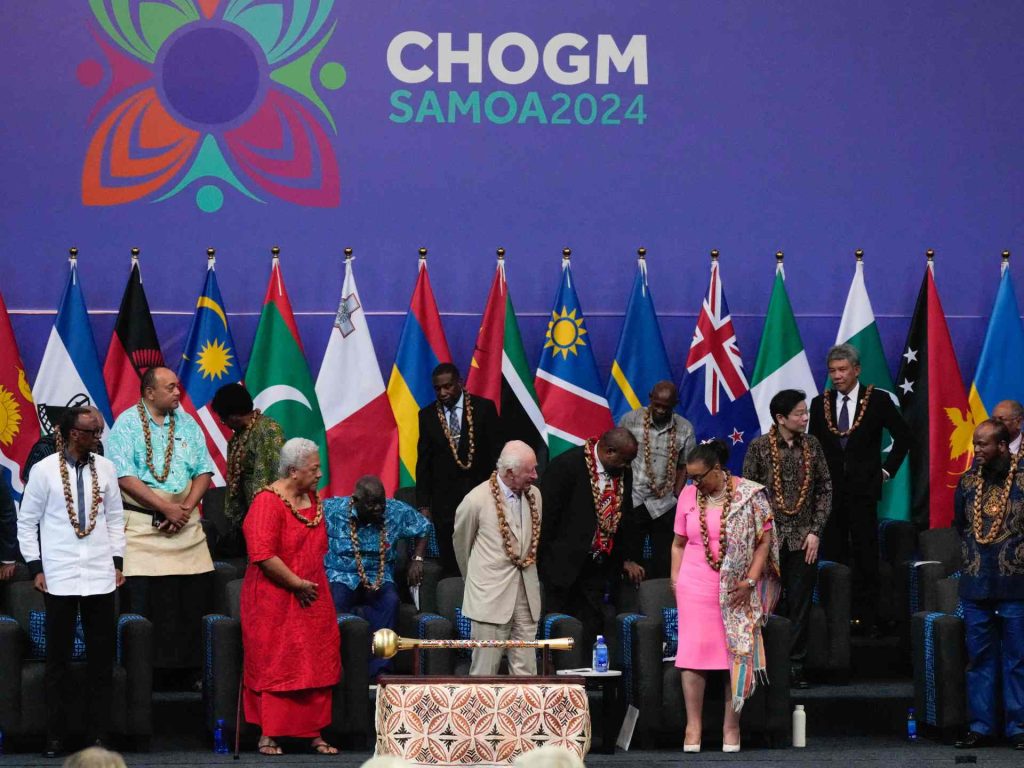As a new secretary-general assumes leadership of the Commonwealth, it seems de rigueur in some circles to dismiss the organisation as a relic of a bygone era. To speak of it with any seriousness places one in a social pillory, the face upturned for pelting with the fruits of modernity.
Still, counterarguments exist. Nations would not be lining up to join if the Commonwealth were indeed an anachronism. Shared bonds of language, legal codes and education systems make trade cheaper between member nations. If an English-speaking democratic association of nations did not exist, one would surely be created.
Ultimately, however, the Commonwealth today struggles to justify itself to wider audiences.
To make itself relevant, the Commonwealth must confront, not duck, the vital questions it is ready-made to address. Forty years ago, the organisation faced an existential question of relations with apartheid South Africa. Today it must tackle the issue of reparations for the largest forced migration in human history: the transatlantic slave trade.
Last year, at the biennial Commonwealth summit in Samoa, the final communique addressed the issue of reparations, stating: “The time has come for a meaningful, truthful, and respectful conversation towards forging a common future based on equity.”
It is no secret that support for the Commonwealth has traditionally – though not exclusively – come from those who reside on the right. In response to the communique, some previously supportive voices in the media sounded the bugle for the United Kingdom’s exit – an echo of the lamentable reaction a generation ago when some called for continued relations with Pretoria against all the facts that made apartheid unpardonable.
It need not be this way. Opening the conversation on reparations would not only renew the organisation’s relevance; if approached with care, it could revitalise the Commonwealth itself, providing a shared unity of purpose and new common projects around which to rally.
Still, for many, the idea of reparations is difficult to fathom. The crime is vast in scale, spans centuries, and is geographically diffuse. Who should pay? To whom? Individuals, communities, governments? Yet no technical obstacles to redress should justify ignoring one of humanity’s greatest crimes.
The abduction of tens of millions of young Africans – at a time when the continent’s population hovered around 100 million – inflicted material harm that endures today. Meanwhile, Britain and other European nations amassed wealth and power from the trade. This past continues to shape our present.
But it is perhaps the historical dimension that causes many to recoil: why should we pay for the crimes of our forebears, several generations removed? To ease resistance, we must abandon zero-sum thinking.
Funds and cooperation could be channelled into new joint ventures between Britain and other Commonwealth countries where both sides benefit: investments and programmes that create shared, long-term value, designed to outlast political cycles and changing administrations. These could be public, private, or both – but distinct from other initiatives already in existence.
Infrastructure should be a priority, driving economic development, creating jobs, and connecting the continent. One of Africa’s defining challenges is its lack of intra-continental trade – a legacy of colonial-era resource extraction that funnelled raw materials out to the West rather than cultivating regional exchange. A free trade agreement between Africa’s 54 nations is under way to reduce tariffs and unlock economic potential across the continent, but without material connectivity – roads, railways, ports – the transformative impact will be blunted.
Second, debt forgiveness should be up for discussion. No Western funds are required up front, only a write-down off government books. Debt is corroding many African nations, exacerbated by a global financial architecture that favours Western interests and penalises developing nations. This is no accident: banking, insurance, and capital markets were shaped by the profits and economic structures built during the era of slavery.
Today, many African nations spend more on debt repayments than on education and healthcare combined. Fiscal space is required not only to fund development; it is essential for building climate resilience in the continent least responsible yet one of the hardest hit by rising temperatures.
What is certain is that calls to leave the Commonwealth will not silence the conversation on reparations. It was a central theme at the African Union summit in February, and the Caribbean Community has been actively pursuing the issue for over a decade. Instead of retreating, why not lead – just as the Commonwealth did with collective sanctions isolating apartheid South Africa? No other global body, unrestricted by region, is facilitating serious discussion on feasible, practicable reparatory justice between developed and developing nations. Once we move past the noise, a framework for reparations can be crafted that fosters mutual benefit rather than conflict.
Africa holds immense opportunity. Its markets are set to surge, driven by a demographic boom that will see one in four working-age people worldwide residing on the continent by 2050. It is rich in the critical minerals that will power the energy transition and define the economies of the future. To fully seize this opportunity, the past should be reckoned with and leveraged to create joint value.
The Commonwealth is often dismissed as a talking shop. But on this issue, talking is exactly what is needed.
The views expressed in this article are the author’s own and do not necessarily reflect Al Jazeera’s editorial stance.


